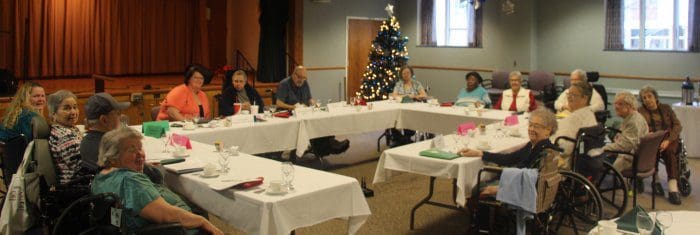Resident Council Give Influential Voice to Elders

Milton Bull makes it clear that his job as president of Resident Council at St. John’s Home entails much more than simply presiding over a meeting once a month. He is not one to shy away from the opportunity to pull a member of administration aside when he passes them in the hallway or at an event to discuss an issue or suggestion. At the same time, he understands that progress does not always happen quickly. “We’ve learned that things do take time,” says Milton, who is serving a two-year term as president of the council. “We just need to keep advocating.”
Resident Council is a group of dedicated elders working to guarantee that the collective voice of their peers is heard. Each neighborhood throughout St. John’s Home is given representation and monthly meetings become a forum for council members to offer their feedback. “The idea is for elders to discuss concerns and suggestions they have with us to improve life at St. John’s,” explains Stacy Hall, director of social work and official Resident Council advisor.
When Milton—or any other member of the council—brings a topic to the table during monthly meetings and that issue resonates amongst other council members, the group decides how to best proceed. In many cases, the manager or practice partner from the department most closely associated with the issue at hand is invited to the next meeting. These visiting speakers offer their individual perspective on the issue and can bring the input from the council back to their department to make improvements.
2018 Officers and Advisors
While elders and administration may not see eye-to-eye on every subject that comes up, the Resident Council ensures a much more collaborative relationship. Milton feels that the Resident Council process is much more conducive to making St. John’s Home a better place for both elders and employees to live and work. “I find that by working with (administration), not against them, you get better results.”
Stacy Hall agrees that both parties benefit from the collaboration. “We are better able to pinpoint what is most important to elders. It also helps us identify systemic issues that we need to address.”
